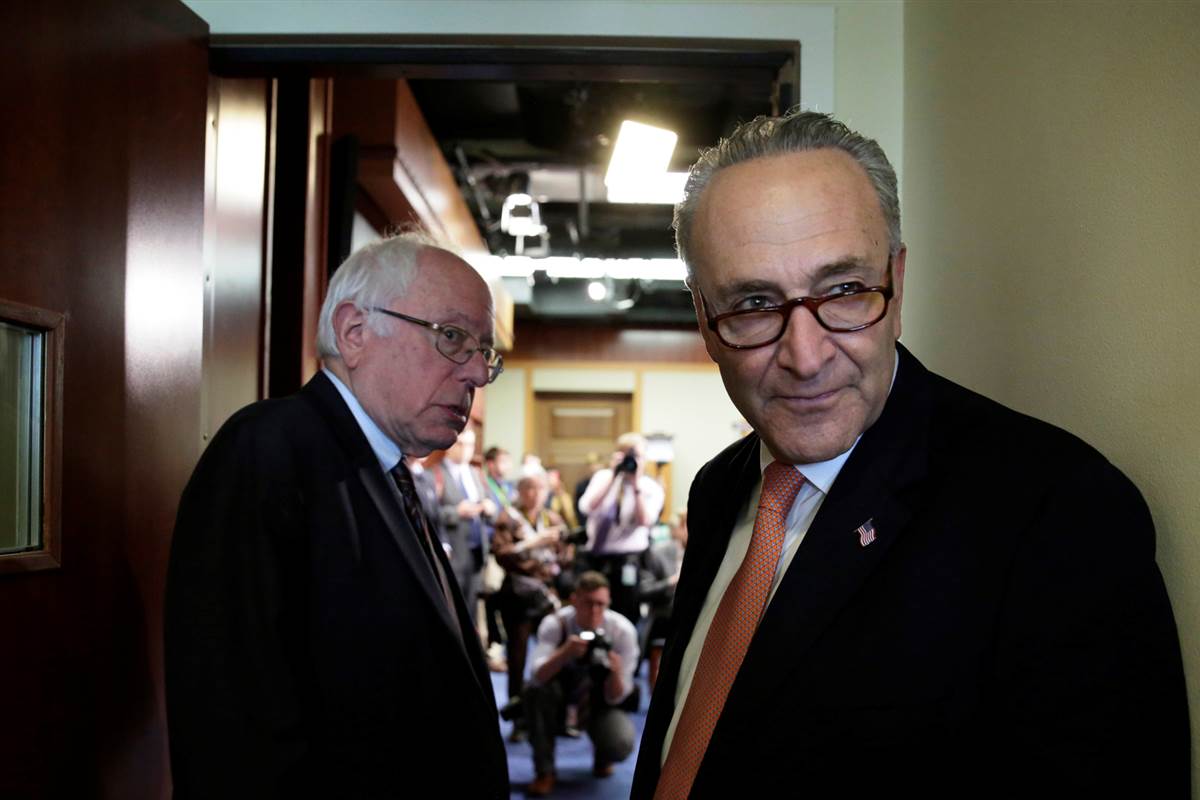

Will the Democrats Continue to Go the Wrong Way on Economics?

Will the Democrats Continue to Go the Wrong Way on Economics?
by D.J. McGuire
The events of this week in Washington do not bode well for the Democratic Party. The combination of Democratic senators openly endorsing government monopoly health insurance and the Republican president making a move toward immigration reform, however small, puts the GOP in a better position to hold the Free Marketeers in 2018 and 2020.
We’ll start with the Democrats, including presidential candidates, who seemed to rush to endorse Bernie Sanders’ “single payer” health insurance bill. While Sanders et al would like voters to believe this is merely copying standard practice in the rest of the developed world, in reality no advanced economy is as government-centric as Sanders wants the United States to be on this issue. The two nations closest to what sanders proposes – the United Kingdom and Canada – still allow private insurance in certain areas (for Canada, dental and vision as well as some prescription drugs; for the UK, private insurance is available for all services, but usually most desired in areas where the National Health Service is considered poor). Moreover, in both of these countries, health spending is a second tier (i.e., provincial) responsibility. In continental Europe, a multipayer system of funds, which are at least partially funded by user charges, is the norm. In other words, those who endorse the Sanders bill would give the United States the *least* market-friendly health insurance system in the developed world. Republicans have already begun using this as a cudgel against their opponents here in Virginia.
For the general election, most say their aversion to Clinton, not support of Trump, was their true motivator . . .
(they) are the most educated and highly paid of the Trump groups (and non-Trump voters).
They are more cosmopolitan, the most likely group to know LGBT people, and they are least likely to watch TV or to smoke. Along with Staunch Conservatives, they are one of the most politically engaged and informed voter groups.
. . . Their own racial identity is not salient to them, and they are similar to Democrats in their warm feelings toward members of minority groups. They also reject nativist conceptions of American identity.
In other words, they are the very voters most likely to switch from Republican to Democrat, so long as the latter would be willing to move their way on economic issues – the exact opposite of what Sanders et al did. In fact, if anyone moved their way this week, it was Trump himself.






